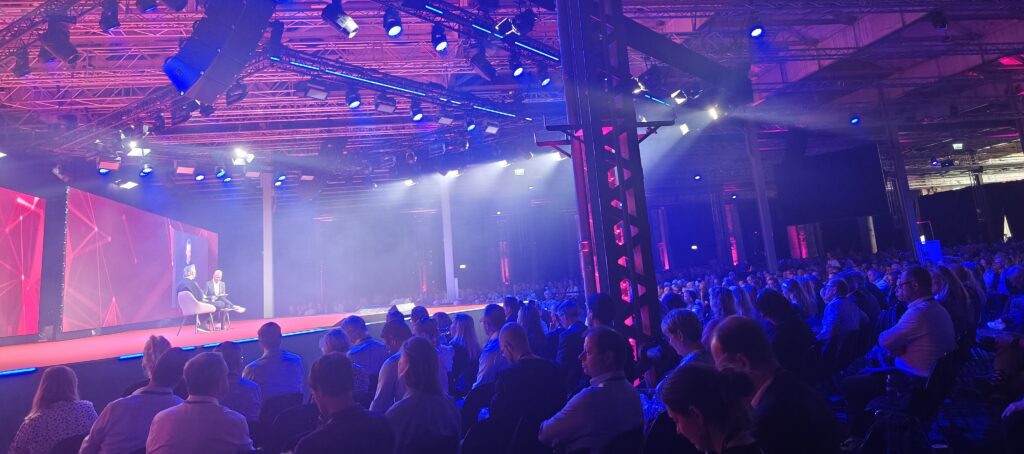The President’s Summit in Copenhagen last week was a spectacular event last week with more then 4000 delegates, creating a vibrant hub of ideas and inspiration. This grand event, featuring lively exhibitions, a big brass band welcoming delegates each morning, captivating performances by a great painter and a Ukrainian dance company etc., gave a lot of inspiration. Here’s a summary of some of the notable speakers and some key takeaways from these sessions.
Keynote Highlights
Dr. Prof. Frederik Pferdt: “Future – What’s Next is Now”
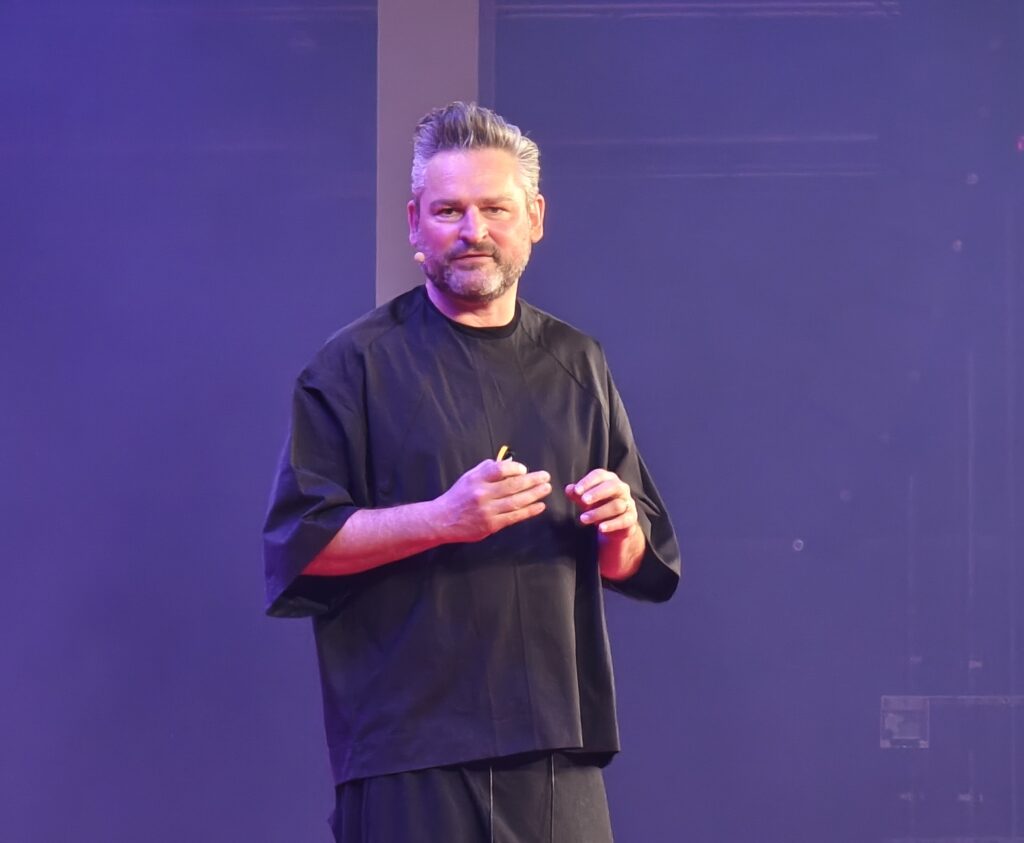
Google’s first innovation evangelist, Dr. Prof. Frederik Pferdt, talked on embracing a future-ready mindset. He introduced the concept of “Mindstate,” a dynamic perspective influencing how we experience the present, emphasizing its superiority over the static “mindset.” His six dimensions of Mindstate—Radical Optimism, Unreserved Openness, Compulsory Curiosity, Perpetual Experimentation, Expansive Empathy, and Dimension X—encouraged attendees to leverage uncertainty for growth and innovation. His mantra, “Don’t ask for permission, just do it,” resonated deeply with those looking to proactively shape the future.
Dr. Prof. Steven Rogelberg: “Meetings – How to Fix Meetings
Renowned expert on organizational dynamics, Dr. Prof. Steven Rogelberg, shared strategies to transform meetings from productivity drainers into powerful collaboration tools. He advocated for framing agendas as questions to foster engagement and actionable discussions. For example, instead of “Budget Problem,” use “How will we reduce our spending by $100K by the end of the fiscal year?”.
Kim Scott: “Culture – How to Work Better Together”

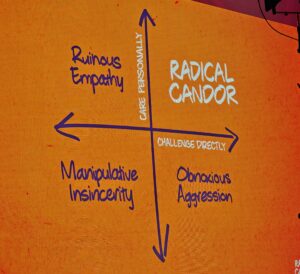 Kim Scott, a world expert on giving feedback and former CEO coach, introduced the concept of Radical Candor—caring personally while challenging directly when giving feedback. She stressed the importance of genuine empathy combined with directness to avoid falling into the traps of ruinous empathy or manipulative insincerity. Scott encouraged leaders to solicit real criticism and feedback to foster an open, productive, and bias-free team culture. Her advice: “If a person gets angry, get curious, not furious,” is a practical tip for maintaining constructive dialogues.
Kim Scott, a world expert on giving feedback and former CEO coach, introduced the concept of Radical Candor—caring personally while challenging directly when giving feedback. She stressed the importance of genuine empathy combined with directness to avoid falling into the traps of ruinous empathy or manipulative insincerity. Scott encouraged leaders to solicit real criticism and feedback to foster an open, productive, and bias-free team culture. Her advice: “If a person gets angry, get curious, not furious,” is a practical tip for maintaining constructive dialogues.
Prof. Adam Galinsky: “Leadership – Universal Path for Leading Others”
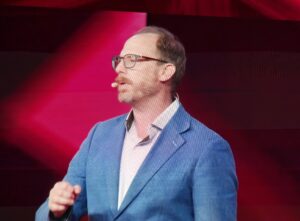
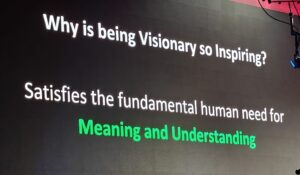 Columbia Business School professor and bestselling author Prof. Adam Galinsky explored the “leader amplification effect,” where a leader’s words and actions are significantly magnified. He highlighted the importance of inspiring leadership, which satisfies fundamental human needs for meaning, understanding, support, and status. By adopting a visionary approach, leaders can provide their teams with a compelling “why” to drive motivation and resilience.
Columbia Business School professor and bestselling author Prof. Adam Galinsky explored the “leader amplification effect,” where a leader’s words and actions are significantly magnified. He highlighted the importance of inspiring leadership, which satisfies fundamental human needs for meaning, understanding, support, and status. By adopting a visionary approach, leaders can provide their teams with a compelling “why” to drive motivation and resilience.
Jonathan Allen: “A Leader’s Guide: How to Go from Idea to Value with Generative AI”

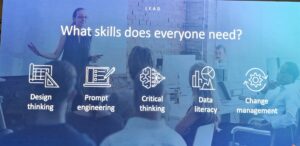
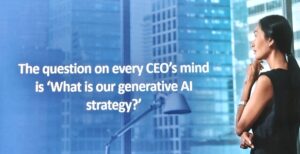 AWS technology executive Jonathan Allen discussed the transformative potential of generative AI. He emphasized the need for leadership, cultural shifts, and new skills to effectively leverage AI. Allen outlined a six-step approach: Learn, Build, Establish, Lead, Act, and GO. By integrating AI into their organizational DNA, leaders can drive innovation and stay ahead in the competitive landscape. We emphasied that generative AI is only a tool, not a substitue for humans, and we need to continuosly learn to be better prepared for an unknown future. He gave us an interesting quote from Isaac Aimov, writer and professor in Modern Science Fiction„ It is easy to predict an automobile in 1880; it is very hard to predict a traffic problem.”
AWS technology executive Jonathan Allen discussed the transformative potential of generative AI. He emphasized the need for leadership, cultural shifts, and new skills to effectively leverage AI. Allen outlined a six-step approach: Learn, Build, Establish, Lead, Act, and GO. By integrating AI into their organizational DNA, leaders can drive innovation and stay ahead in the competitive landscape. We emphasied that generative AI is only a tool, not a substitue for humans, and we need to continuosly learn to be better prepared for an unknown future. He gave us an interesting quote from Isaac Aimov, writer and professor in Modern Science Fiction„ It is easy to predict an automobile in 1880; it is very hard to predict a traffic problem.”
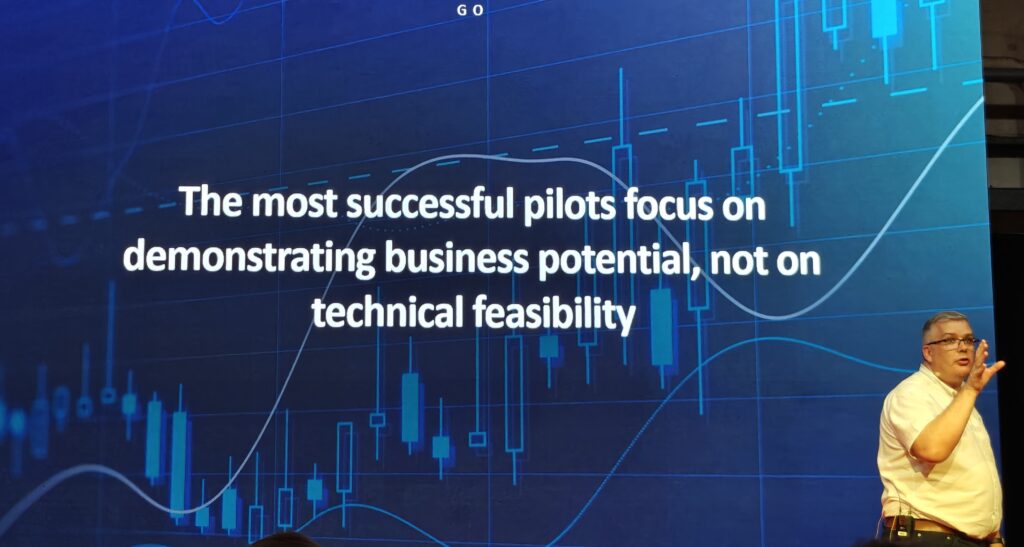
Prof. Christina Wallace: “Entrepreneurship – The Entrepreneurial Leader”
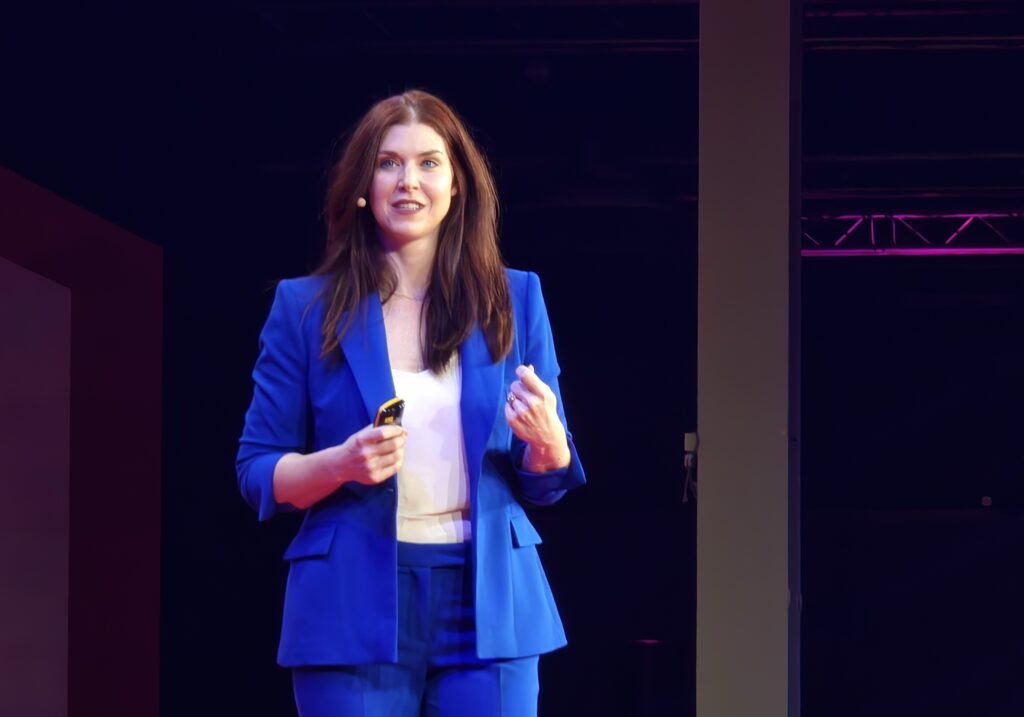
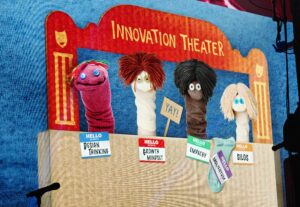 Harvard Business School’s Prof. Christina Wallace was very inspiring when she shared a modern approach to entrepreneurship. She emphasized the importance of a feedback loop in product development, validating ideas through minimum viable products (MVPs), and investing in a portfolio of bets. Her entrepreneurial mindset—exploring data, embracing productive failure, and leading with questions—encouraged leaders to be innovative and resilient in the face of challenges.
Harvard Business School’s Prof. Christina Wallace was very inspiring when she shared a modern approach to entrepreneurship. She emphasized the importance of a feedback loop in product development, validating ideas through minimum viable products (MVPs), and investing in a portfolio of bets. Her entrepreneurial mindset—exploring data, embracing productive failure, and leading with questions—encouraged leaders to be innovative and resilient in the face of challenges.
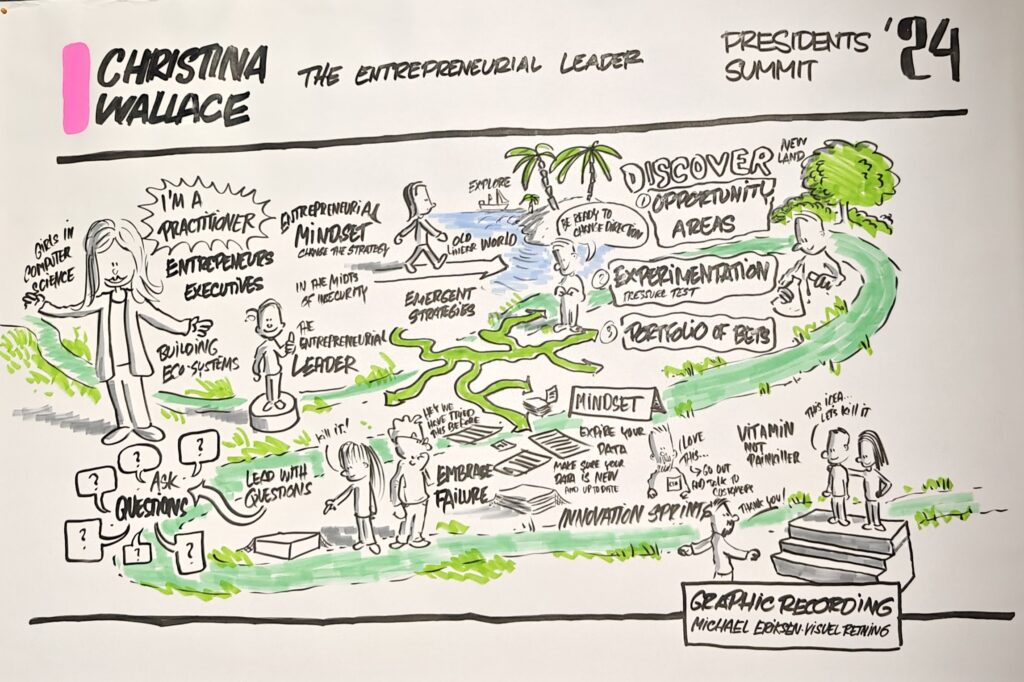
Mikkel Severin: “Emotional Intelligence – How Top 1% Achieve Excellence”
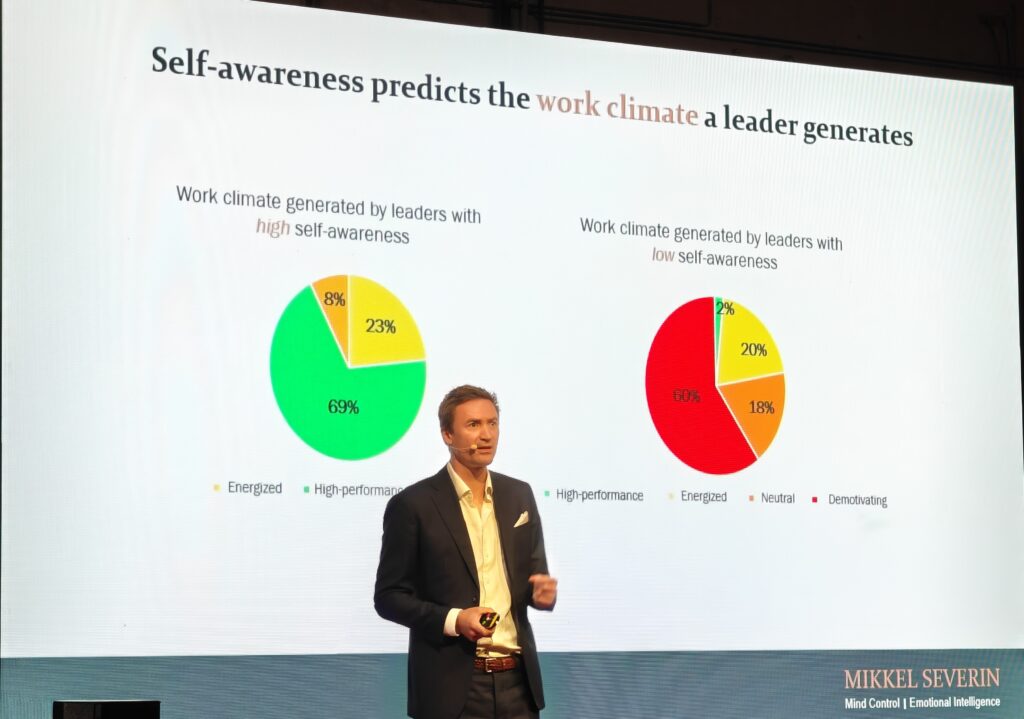
Emotional intelligence advisor Mikkel Severin highlighted the critical role of self-awareness in effective leadership. Only a small percentage of leaders excel in EQ competencies, yet these skills significantly predict the work climate they create. By enhancing self-awareness, leaders can improve their emotional intelligence and foster a more positive and productive organizational culture.
Prof. Knut Haanaes: “Strategy – Balancing Tomorrow with Today”
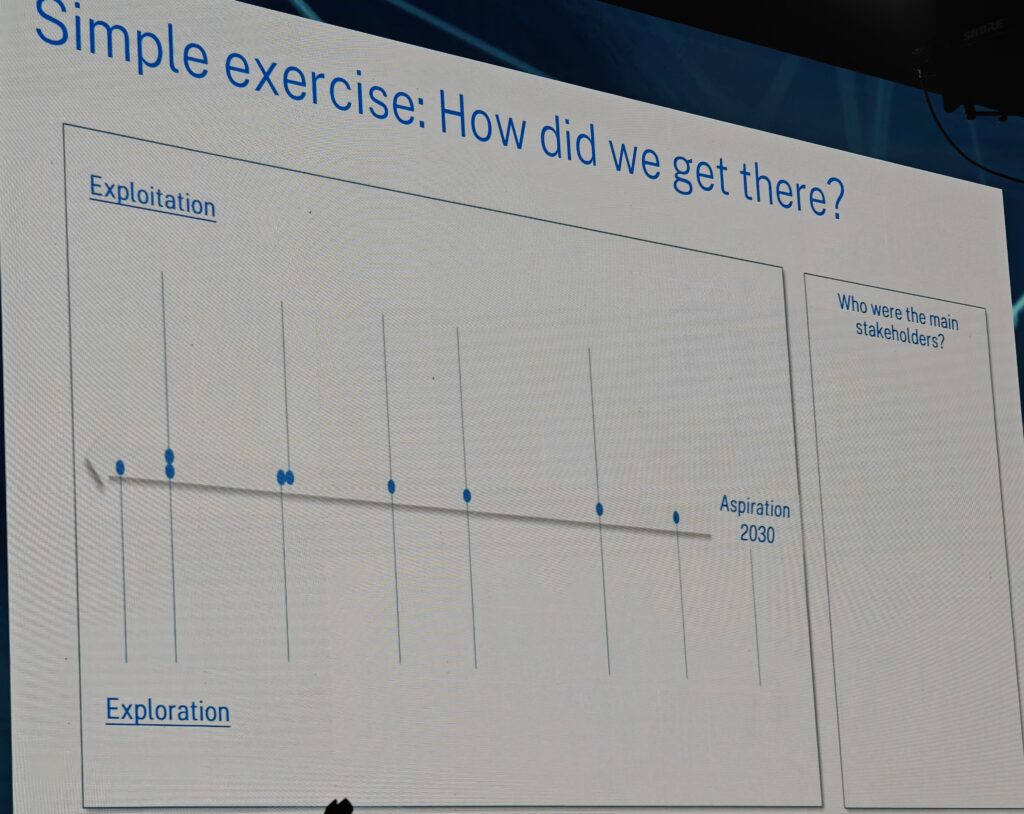
IMD Business School’s Prof. Knut Haanaes presented the “future-back-lens” approach to strategy. Instead of the traditional “present-forward” thinking, he urged leaders to envision the desired future and then work backward to determine the necessary steps to achieve it. This forward-thinking strategy helps organizations stay focused on long-term goals while addressing current challenges.
Prof. Jeanne Liedtka: “Design Thinking – Why Design Thinking Works”
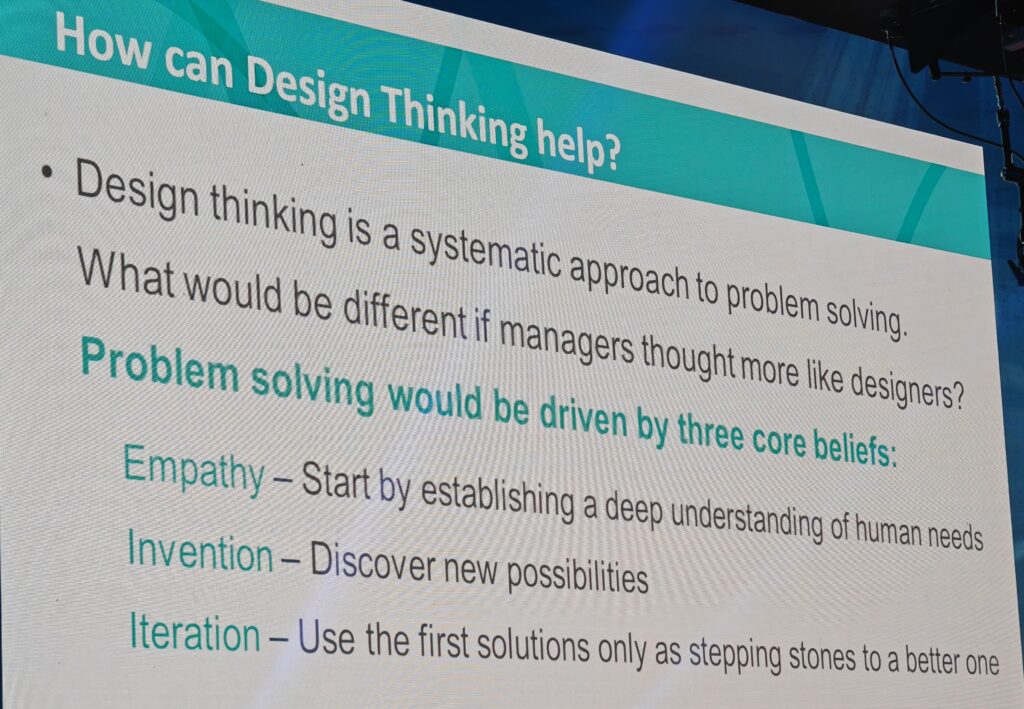
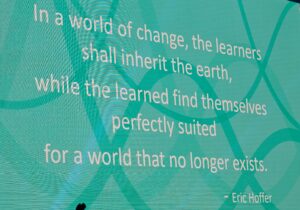 Design thinking pioneer Prof. Jeanne Liedtka emphasized a systematic approach to problem-solving based on empathy, invention, and iteration. By understanding human needs deeply, discovering new possibilities, and using initial solutions as stepping stones, leaders can drive innovation and create impactful solutions.
Design thinking pioneer Prof. Jeanne Liedtka emphasized a systematic approach to problem-solving based on empathy, invention, and iteration. By understanding human needs deeply, discovering new possibilities, and using initial solutions as stepping stones, leaders can drive innovation and create impactful solutions.
Takeaways
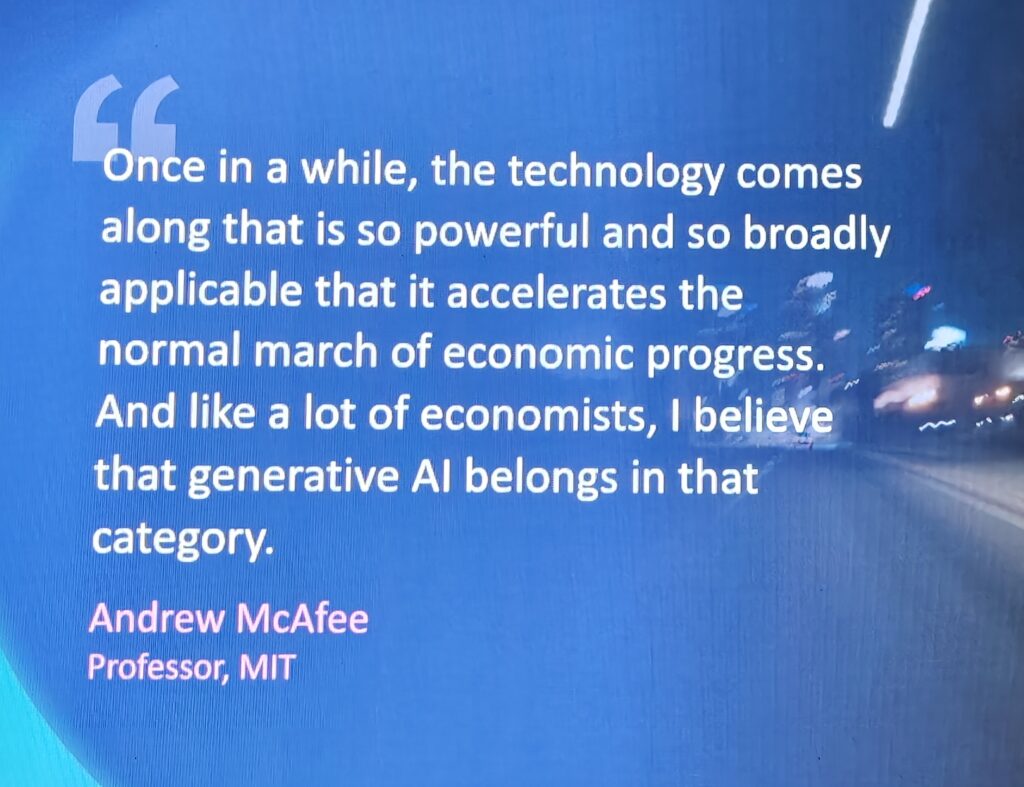
- Embrace Change and Uncertainty: Adopt a future-ready mindset and see ambiguity as an opportunity for growth.
- Transform Meetings: Frame meeting agendas as questions to foster engagement and actionable outcomes.
- Practice Radical Candor: Care personally and challenge directly when giving feedback, to build an open and productive team culture.
- Leverage AI: Integrate AI into your organizational DNA and focus on continuously learning by experimentation.
- Adopt an Entrepreneurial Mindset: Validate ideas through experimentation and invest in a portfolio of innovations.
- Strategize for the Future: Use the future-back-lens approach to align long-term goals with current actions.
- Think Like Designers: Apply empathy, invention, and iteration to solve problems effectively.
This is a yearly event and will be arranged 10-11 June next year.
